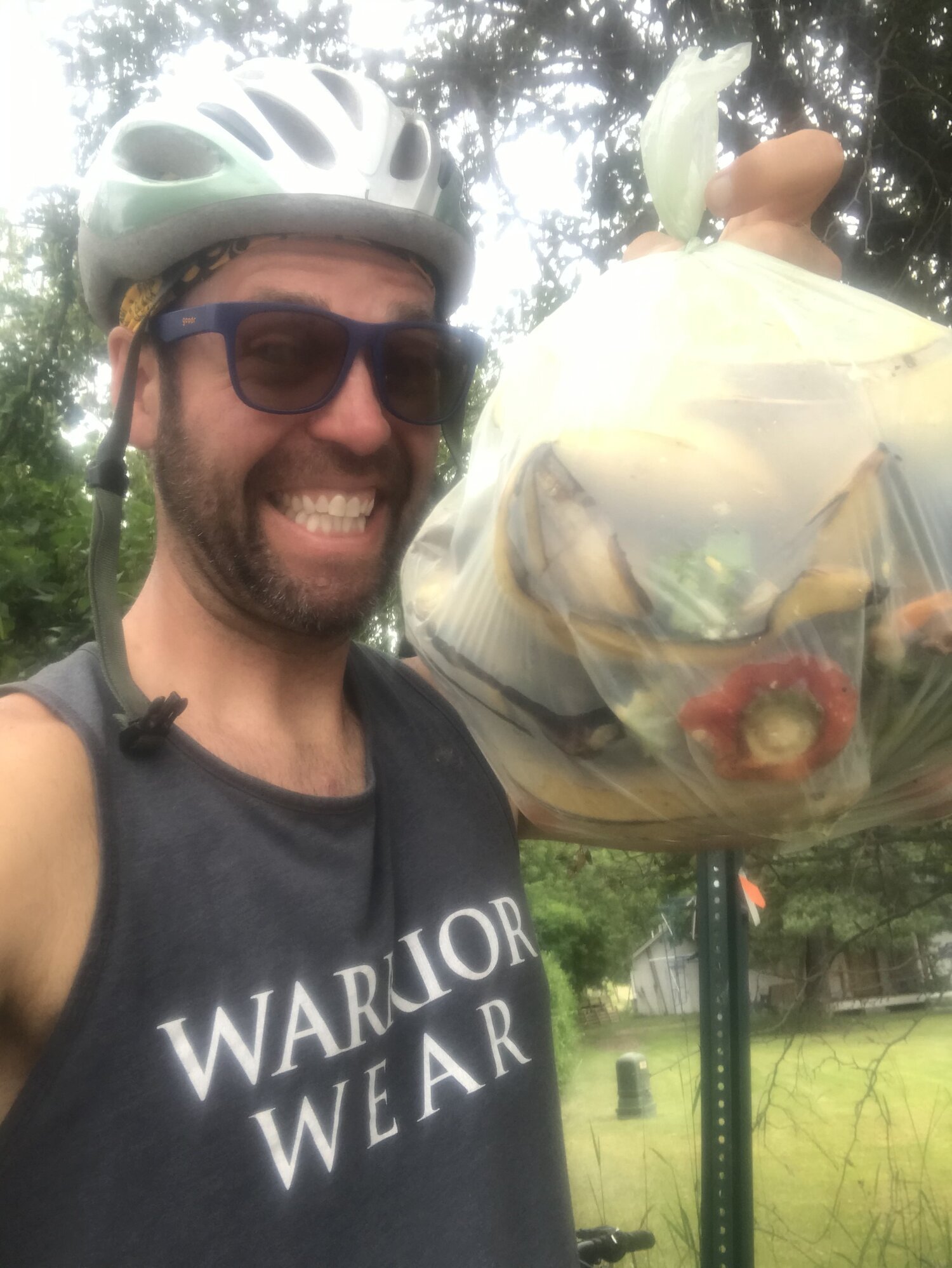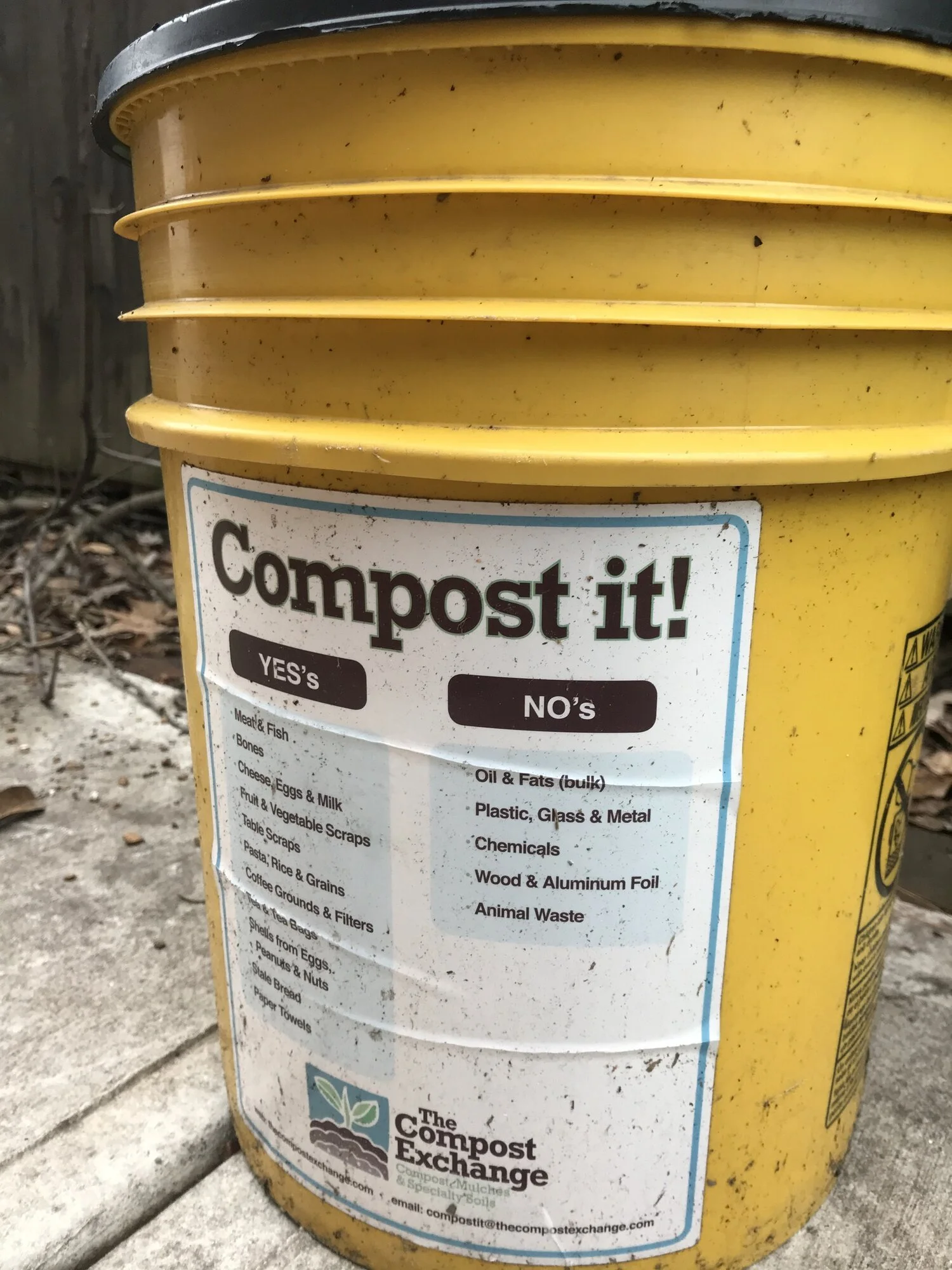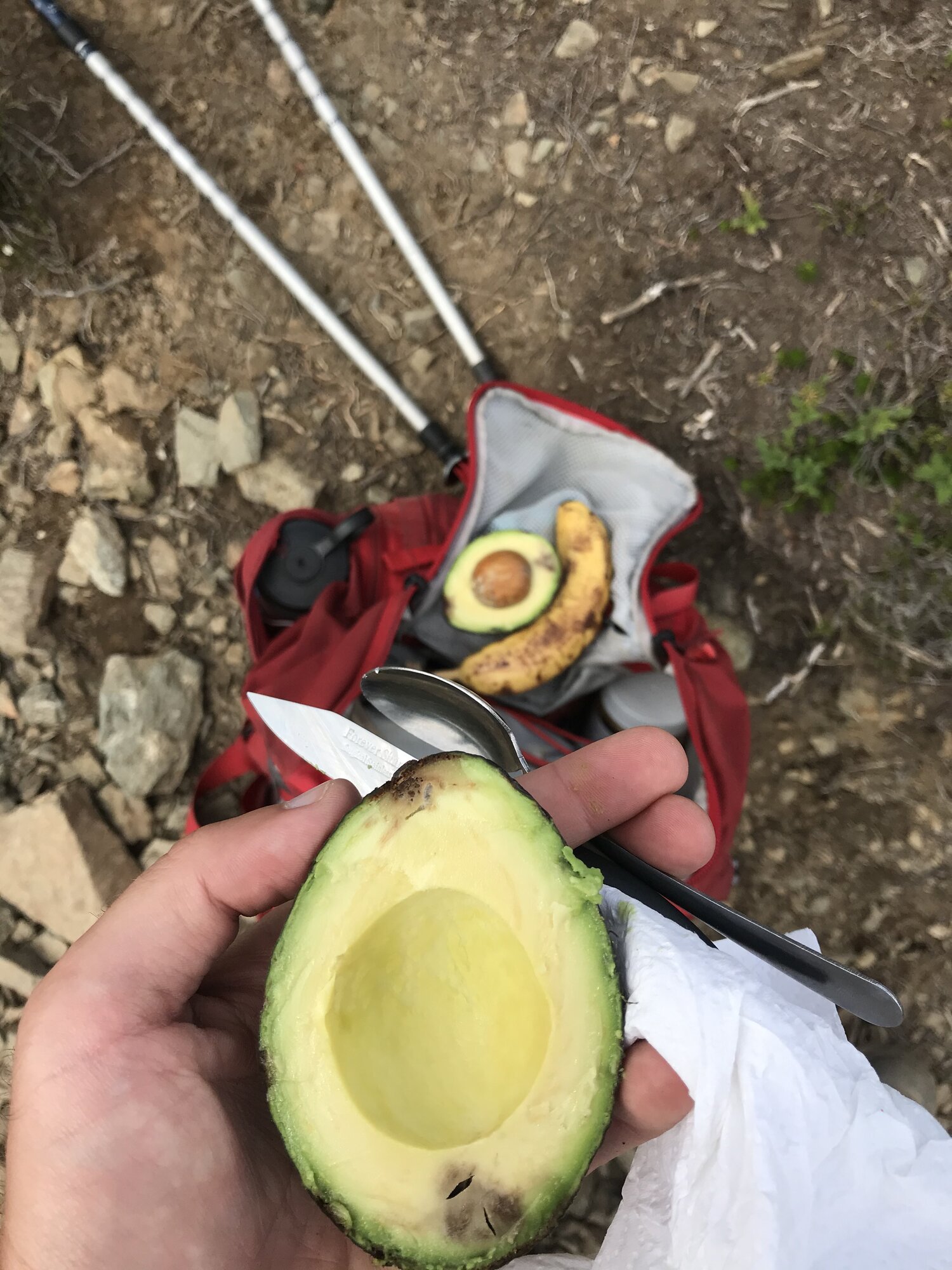On the Road Nomad Life: Food Composting
Compostable bag of food scraps about to go inside the yellow compost deposit, Yellowstone National Park.
Have you ever tried to compost your food while on a road trip?
One of my favorite discoveries in my journey to become a more sustainable human being occurred a few years ago when I hired my dude Ray in Columbus Ohio for his food composting service The Compost Exchange. I was familiar with composting leaves and grass clippings but thought that composting food scraps was simply something only “farmers” did.
We used The Compost Exchange until literally the day that we packed up the Rogue and hit the road and it was a goal of mine to continue to compost my food while being a nomad.
WHY?
Composting your food is rather easy, yet to me it is a shockingly UNPOPULAR practice both in America and most countries, and it’s kind of fun too. It cuts down on your trash waste by 75% I would venture to guess if you eat a lot of REAL FOOD.
They talk about the 3R’s Reduce, Reuse, and Recycle. Recycling is great and all but reduction of trash or recycling is really the Golden R. This is the one that makes the needle move. By composting your food you are making a HUGE IMPACT on your own amount of waste you are putting back into the world.
You are putting the food back into the Earth the way it should be for a sustainable way to recycle your leftover food. Farmers know food composting better than most but I am always surprised by the funny looks I catch from people that are just SO SURPRISED that I compost my food.
Before you cast that glare at me let me share some BENEFITS of composting:
1. Enriches soil.
2. Suppresses plant diseases.
3. Did I mention the HUGE reduction in your trash contribution to Planet Earth? (Yeah I did last paragraph ha!)
4. Reduces methane emissions from landfills (GLOBAL WARMING buzzwords here!)
5. Encourages the production of beneficial bacteria and fungi to create humus.
A very big bag of compost about to get buried in the woods, somewhere in Montana!
Nomadic Composting is NOT EASY!
And there are not a lot of great resources out there on the internet about how to be a nomad AND keep up composting your food while on the road/roaming.
Trust me I looked for it on the internet!
Your options to start composting seem to be (unless you are a nomad like me):
A. Either hire a service like Ray if you live in a city like Columbus that doesn’t have a city-wide service.
B. Utilize your resources and systems like they have in San Fran, Bellingham, and Seattle to compost.
C. Do it yourself if you live on some land!
One of my clients has been composting food and yard waste for so many years that it then creates their mulch to support their nursery and trees that they grow the whole next year!
here are my five tips for how to Compost while you are on a Road Trip or if you become/or are a Nomad!
Nomadic Composting #1: Take it to a food co-op grocery store that accepts compost. I made drops in Bellingham Washington, Fort Collins Colorado, and Astoria Oregon so far. Make sure you have it in a compostable bag and it’s not a MESS. And say THANK YOU!! They are taking your shit, literally :)!
Nomadic Composting #2: Find a farm. No really, seems far fetched right? I found a husband and wife in Paso Robles, California who let me bring me food compost over and I feed it to their chickens. They love it, I love it, and the chickens love it. I watched the chickens eat a week’s worth in about twenty minutes. (There are 12 of them.) I take a weekly yoga class on the farm, purchase farm fresh eggs, and take a dip in their pool.
It’s quite a big trip when I go to their farm!
Nomadic Composting #3: Bury it. No really. Bury it in the woods. Not on private property. Not when others are watching. Not near water. Not near where dogs will be walking. Bury it one foot deep and one foot wide. Shhhhh don’t tell anyone.
Nomadic Composting #4: Take it to a farmers market. Seriously. Farmers will use it. It saves them money and gives them better soil. Buy something from the farmer before you offer them your banana peels though please!
Nomadic Composting #5: Put in a five gallon bucket, fill with some sawdust, and hold it until you find yourself in a city that has a service that you can drop it off. It might get hot & smelly but you are doing good!
Avocado peels, banana peels, avocado pits, all of it. Compostable!
I have been on the road since late June and have not had to waste food scraps yet. Sure I had to beg a food co-op (their IG person had told me YES in my defense) to take a big bag and there have been some places (I am calling you out Iowa, Montana, & parts of the other states I have been) that pay no interest in making composting food an easy option for their residents & visitors. I had to travel with mine from Iowa to Colorado and from Montana to Washington, several hundred miles just to compost it. Do better Iowa. Do better Montana.
I have had a few extra steps I needed to take and yes I had to go in the woods a few times for a burial but overall it’s been pretty easy. I would estimate that over the past several years I have been composting Jill & I have been able to reduce our trash input in landfills by over 3,000 POUNDS of trash. That’s a LOT OF TRASH.
And we are just getting started. It’s one of the easiest, most practical, and common sense ways you can have an impact on the future of this Planet and support sustainable habits for our environment, other humans, animals, and plants RIGHT NOW.
And the best news is you probably don’t have to dig holes in the woods like me UNLESS you are one of those Nomadic Composters like me!
This seaweed above is off Cayucos Beach in California and is good for the sand, the animals, and the ocean, which will eventually repurpose it back into the water, or the birds and bugs will feed off of it.
It’s a beautiful practice that is used at Non Bouje beaches to compost and sustain the ocean. We can do the same as humans with our own food scraps.
Reduce. Reuse. Recycle. Take care of Mother Earth. Composting is a great way to do that.
I’ll see ya in the woods burying a bag perhaps?
Thanks for reading hope you learned something new or if you decide to give it a whirl and have any questions let me know!
Until the next dirt path or winding trail,
Mike R




